Respect
 for mature thematic content, strong language including racial epithets, violence, suggestive material, and smoking.
for mature thematic content, strong language including racial epithets, violence, suggestive material, and smoking.
Reviewed by: Samiatu Dosunmu
CONTRIBUTOR
| Moral Rating: | Offensive |
| Moviemaking Quality: |
|
| Primary Audience: | Adults |
| Genre: | Biography Music Drama |
| Length: | 2 hr. 25 min. |
| Year of Release: | 2021 |
| USA Release: |
August 13, 2021 DVD: November 9, 2021 |
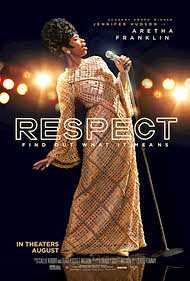

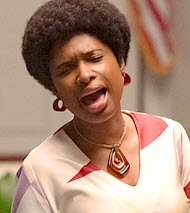


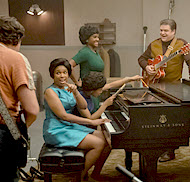
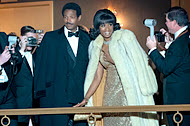
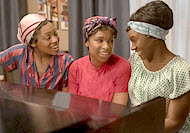
About MUSIC in the Bible
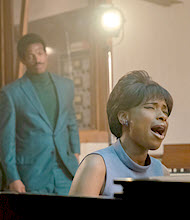
What is SIN? Is it just “really bad people” that are sinners? Answer
What is a TRUE BIBLICAL CHRISTIAN?
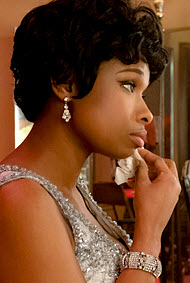
What is sexual immorality?
Sexual lust outside of marriage—Why does God strongly warn us about it?
Purity—Should I save sex for marriage?
CONSEQUENCES—What are the consequences of sexual immorality?
Abusive marriage / domestic violence
How can I make wiser choices? How does one become WISE and DISCERNING?
RACISM—What are the consequences of racial prejudice and false beliefs about the origin of different ethnicities? Answer
| Featuring |
|---|
|
Jennifer Hudson … Aretha Franklin Forest Whitaker … C.L. Franklin Audra McDonald … Barbara Franklin Saycon Sengbloh … Erma Franklin Hailey Kilgore … Carolyn Franklin Brenda Nicole Moorer … Brenda Franklin Marlon Wayans … Ted White Marc Maron … Jerry Wexler Tituss Burgess … Reverend Dr. James Cleveland Kimberly Scott … Mama Franklin Tate Donovan … John Hammond Mary J. Blige … Dinah Washington Nevaeh Moore … Young Carolyn See all » |
| Director |
|
Liesl Tommy |
| Producer |
|
Metro-Goldwyn-Mayer (MGM) BRON Studios [Canada] See all » |
| Distributor |
In 1952, 10-year-old Aretha (Skye Dakota Turner), also known affectionately as “Re,” is roused out of her sleep by her father C.L. Franklin (Forest Whitaker) to sing at a party he is hosting at his Detroit home. As she makes her way to the piano, singer Dinah Washington (Mary J. Blige), acknowledges her vocal talent by commenting that “she has a voice going on 30.” Young Aretha wows the crowd both at her father’s lavish parties and as a vocalist at New Bethel Baptist Church where he is lead pastor. Her father has been dubbed the man with “a million dollar voice.”
Aretha and her siblings, Erma (Kennedy Chanel), Cecil (Peyton Jackson), and Carolyn (Nevaeh Moore), are primarily raised by Mama Franklin (Kimberly Scott) and spend summers with their mother Barbara Siggers Franklin (Audra McDonald).
At the age of 10, her beloved mother Barbara (Audra McDonald) dies of a heart attack leaving Aretha devastated. This and other traumas render Aretha mute. Irritated by her refusal to speak and blinded by his own ambition, her father forces his daughter to resume her life, thereby preventing her from properly grieving. However, she finds comfort in her grandmother and siblings. (While her father was away on speaking engagements, she was raised by many well known historical figures including Mahalia Jackson, and learned to play the piano by ear.)
After the death, the film flashes-forward to a now 16-year-old Aretha (Jennifer Hudson) who is singing solos at her father’s church and an activist in the civil rights movement.
By this time, C.L. Franklin is known for his provocative sermons. The Franklin family becomes close to Martin Luther King, Jr. (Gilbert Glenn Brown) who is impressed by both father and daughter.
However, by age 16, Aretha is the mother of two children: Clarence (Jerel Xavier Alston) and Edward (Chase Burgess), both outside of marriage. In a flashback, it is revealed that Aretha was 12 at the time of her first pregnancy. (C.L. Franklin accepted Clarence’s birth without question. In the case of Edward’s birth, Aretha’s brother—the late Cecil Franklin—revealed that their father was not happy. He had a conversation with his children about sexual immorality, but ultimately accepted his second grandchild.)
Aretha’s father encourages his children to pursue their musical careers due to his connections within the industry. In 1960, Aretha and her father, now her manager, head to New York where they meet John Hammond (Tate Donovan) an executive with Columbia Records. She signs a recording contract. Her first single, “Today I Sing the Blues,” reaches the Top 10 of the Hot Rhythm and Blues summer charts.
Aretha quickly falls in love with Ted White (Marlon Wayans), a self-proclaimed manager.
Q & A
For a follower of Christ, what is LOVE—a feeling, an emotion, or an action?
What is true love and how do you know when you have found it?
After four albums and no hits, Aretha fires her father as manager and marries Ted at age 18 (1961). She appoints him as her manager after her contract with Colombia expires and is persuaded by music producer Jerry Wexler (Marc Maron) to sign with Atlantic Records.
She records “I Never Loved a Man (the Way that I Love You)” at FAME studios in Muscle Shoals, Alabama, backed by the Muscle Shoals band. Later, it is the modification of Otis Redding’s song “Respect” that truly catapults her to national notice.
Aretha now hires her adult sisters Erma (Saycon Sengbloh) and Carolyn (Hailey Kilgore) as her back-up singers and replaces her manager Ted, whom she divorces (1969), with Cecil (Leroy McClain).
Overwhelmed by the pressures of fame and expectation to always produce music of the same genre, she decides to record and document her 1972 Gospel-genre album, entitled “Amazing Grace,” under the guidance of well-known recording artist, composer, arranger James Cleveland (a multimillionaire who got his start as a music minister).
Spiritual Exploration
Used and Abused
Reflecting on Aretha Franklin’s early rise to fame, one may ponder whether she was appreciated for her talent or taken advantage of because of it. Her father says he loves Aretha, but whenever he does not obtain what he wants from her, he accuses Aretha of “not walking in the Spirit.”
In the film, her father is very upset when Aretha defies his wishes by bringing Ted White home to meet her family for the first time. He berates her by mocking her choice, further driving Aretha into White’s arms.
C.L. becomes ever more temperamental when Aretha, to preserve their relationship, fires him as her manager. MLK’s 1968 funeral, her father becomes upset when Aretha refuses to resume touring with him. In response, he tells her that she is demonically possessed and storms off.
Despite his claim of spiritual wisdom and authority, her pastor father lives a lavish lifestyle marred by sexual immorality, exposing Aretha and her siblings to this at a young age. It is perhaps no surpise that Aretha ends up pregnant at ages 12 and 14.
Q & A
What does the Bible say about HYPOCRITES?
HYPOCRISY IN THE CHURCH — “I would never be a Christian; they’re a bunch of hypocrites.”
What is a TRUE BIBLICAL CHRISTIAN?
What is biblical WISDOM and discernment?
Despite her father’s hypocrisy and foolish behavior (hiding substantial sins from his congregation), Aretha respects him and constantly seeks his approval, until she finds her voice when she covered Ottis Redding’s “Respect.”
Rather than focusing on the damaging effects of sin and hypocrisy, leftist Director Liesl Tommy chose to focus particularly on capturing the depth of Aretha’s inner turmoil over the conflict of desires—Aretha’s versus her father’s. Aretha burns with desire for fame and believes that the key to fulfilling her dreams is to sing in other genres. However, her father wants her to remain in his familiar gospel genre where he has achieved much success.
Q & A
THE LUSTS of this world—What does the Bible say?
It is said that a woman looks for qualities of her father when finding a partner. Sadly, once Aretha marries Ted, he becomes physically and emotionally abusive. Due to her constant need of approval from a male, Aretha often returns to Ted, despite the abuse, and due to a sense of obligation as she appointed him as her manager.
It is not until a highly publicized fight, while on tour in Europe, that Aretha leaves Ted for good.
In the film, she marries Ken Cunningham (Albert Jones) after leaving Ted, appoints her brother Cecil (Leroy McClain) as her new manager and hires her sisters Erma and Carolyn as her back up singers.
She begins to overwork herself by booking back-to-back shows and has to cancel them. She also begins drinking heavily to numb the pain of her traumas. Feeling overwhelmed, she constantly reminds her family and husband that “if it were not for her, how would they survive?”
Despite achieving her goals, Aretha is unhappy. Founder and owner of Shield of Strength as well as the author of The Right Fight: How to Live a Loving Life, John Kennedy Vaughan, describes the feeling of achieving his dream of winning the nationals in water skiing and the loneliness it brought,
“Winning the nationals was huge for me, but being able to be my best in the worst circumstances of my career and having the heart of a champion instead of a heart filled with fear was the most life-changing thing of all.”
Aretha struggled in the same way. Despite her powerful voice, success did not come easy. When she achieved her dream of fame and recognition, she felt alone despite having immense support from friends, family, and other musicians such as Smokey Robinson (Lodric D. Collins).
After posting Marxist Communist civil rights activist Angela Davis’ bail from jail, Aretha convinces Jerry Wexler to produce a live gospel album entitled “Amazing Grace.” She seeks counsel from recording artist Reverend James Cleveland (Tituss Burgess). During one of their conversations, he suggests to her that she was never demon possessed but rather became obsessed with running away from the demons that haunt her.
Throughout her life, Aretha often changed her behavior, and it is possible that she never repented. Unfortunately, she is deceased. We will never know her full truth.
- Language: The words, “f**k,” “J*sus,” “G*d,” “sh*t,” are used several times inappopriately during the film.
- Violence: Heavy— To emphasize the violent outburst Aretha endured at the hands of Ted, she is seen with a black eye and beaten badly.
- Drugs/Alcohol: Heavy— There are a lot of scenes involving smoking and alcohol including Aretha herself indulging in an alcohol and smoking fueled binge before making the decision to enter a treatment facility.
- Nudity: There are two scenes where Jennifer Hudson is seen lying in bed under the sheets naked with her husband next to her.
- Sex: Mild
- Racism: Although racism is not depicted in the film, it is discussed. Aretha and her father’s support for Dr. Martin Luther King, Jr. and the civil rights movement is indicated.
- Other: • Black Israelite theology was incorporated in C.L. Franklin’s sermons. He often proclaimed that African Americans were direct descendants of the slaves Moses freed in Egypt. This ideology has been refuted by many theologians and scholars due to lack of evidence. • Derogatory words such as “n*gger” to refer to an African American and “cracker” to refer to a Caucasian are used. Note that the word “n*gger” was used by C.L. When he addressed people, he deemed beneath him.
- Occult: None
About actress Jennifer Hudson
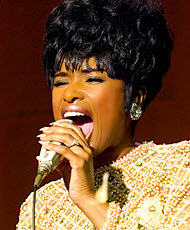
Aretha retained the right to approve casting of any actress who might someday play her in a biographical film. In an article in Us Today magazine, Hudson discussed how she received the news from Aretha herself that she was chosen to play Aretha, if a biopic was made.
“Franklin herself summoned a too-nervous-to-eat Hudson to a 2007 New York hotel breakfast meeting to discuss a possible screen portrayal. But the singer was one of many names discussed, and there wasn't even a screenplay at the time. Nearly 10 years later, on a day off from her starring role in Broadway’s ‘The Color Purple,’ Hudson finally received the fateful call from Franklin… She was the chosen one.”
Hudson reports, “She told me, ‘It is you, young lady, who I want to play me,’” Hudson recalls, that Aretha added one condition. “She did remind me that she was the Queen of Soul and just as long as we had that understanding. I said, ‘Yes ma'am, I know my place, and I respect that.’” “Hence, Jennifer Hudson is now dubbed the Princess of Soul.”
Jennifer Hudson was an active Executive Producer on this film. She expressed in my numerous interviews that she was very involved in the creative process. She hired a dialect , singing, and acting coach to prepare. With the help of her sound mix engineers, she layered her vocals to provide more authenticity, as Aretha had a greater vocal range. Hudson also learned to play the piano for the biopic by practicing 4 hours a day. She has no formal training. Like Aretha, she learned to play by ear. Like Aretha, Hudson grew up in church and forged a similar career path, after her time on American Idol.
Editor comments
This film is a biography of Aretha Franklin, emphasizing her musical performing talent and her life-journey—seeking and achieving great fame. But it also reveals many of the very poor choices she made, and the many pains she suffered as a result. Eventually, she hits rock bottom, prays, and the film ends with an uplifting and emotionally charged scene of her singing in church.
Discerning followers of Jesus may wonder if Aretha truly confesses her many sins and fervently repents, believes in Christ and turns her life over to Him. What is truly in her heart and mind? God knows; we don’t. We can only hope.
Underneath the emotional turmoil of the story and its presentation, one may wonder: Is Jesus Christ and the true Gospel really a focus, or is the focus somewhere else?
The screenwriter and director seem to think that what they are promoting in “Respect” is Social Justice, Progressive political activism, Black power, Feminism, and LGBTG. They want R-E-S-P-E-C-T. In fact, Aretha’s rendition of the song is frequently used by activists with her blessing. (See: Notes on the worldview of Aretha, the screenwriter and the director)
Notes on Aretha Franklin’s real life and worldview

Her father reportedly became a “Reverend” at age 16. He abused alcohol (as did Aretha). He was sexually driven and promiscuous and adulterous (as was Aretha). He was abusive to his girlfriends and wife (she married a hot-tempered liar).
Black Liberation Theology — Her father found fame in preaching “a theology of liberation and racial pride” and became a nationally known Civil Rights activist. Under his leadership, the church became a major contributor to the NAACP. “During the 1960s, New Bethel under her father…became a center of the Civil Rights Movement in Detroit.”
Aretha’s half-sister, Carol Kelley (formerly Jennings) was her father’s daughter by Mildred Jennings, a then 12-year-old congregant of New Salem church (Memphis) where he was the pastor.
According to author Anthony Heilbut, “C.L. Franklin lived very high. His youngest daughter, Carolyn, once said that all their lives the children heard rumors that their father would be killed by romantic rivals.”
Aretha’s first pregnancy was at the age of 12, giving birth to her son Clarence (who in later life suffered from severe mental illness). The boy’s father was Edward Jordan; he fathered her 2nd son when she was 14. They never married.
Many readers may know that Aretha was a lifelong member of the Democratic Party and an avid activist for the Civil Rights movement, Women’s Rights movement, and Native American Indigenous Peoples Rights.
In addition, she was an ally and supporter of the Gay Rights movement. The LGBTQ Advocate calls her “LGBTQ advocate.” Another LBGTQ article author notes,
“It has been well documented that she regularly performed at gay weddings throughout the last few years of her life and was pleased that many of her biggest hits (like ‘Respect’) were used by the community at LGBTQ rallies and marches.”
Aretha’s sister Carolyn Franklin was Lesbian, and Aretha was reportedly a proud supporter of that.
► Watch Dr. Vodie Bauchman message, “Is Gay the New Black?” (streaming video below)
► What about Gays needs to change? It may not be what you think. / Also see: What’s wrong with being Gay? Homosexual behavior versus the Bible: Are people born Gay? Does homosexuality harm anyone? Is it anyone’s business? Are homosexual and heterosexual relationships equally valid?
Q & A
Is the SCREENWRITER’S WORLDVIEW evident in “Respect”?
Her name is Tracey Scott Wilson, and she is a self-declared leftist lesbian feminist. Apparently in her opinion, that worldview comes through clearly in the film.
“Respect is an anthem for the Black power movement, for the women’s rights movement, for the gay rights movement — it’s become a national anthem for political movements all over the world.” —Tracey Scott Wilson
Is that also the DIRECTOR’S WORLDVIEW?
Apparently so. Her name is Liesl Tommy, she’s a South African black woman who promotes LGBTQ. In Pride (an LGBQT magazine), she revealed that in the opening of the film she purposely added a scene of Aretha witnessing two men briefly groping one another’s bottom, flirting and holding hands. (According to Aretha’s family, this is not historically accurate. It was added by Tommy as a foreshadowing of Aretha’s eventual support for LGBTQ+ Rights.
“I did feel like, let me put that in there right at the top so everybody understands the values of our film and of Aretha.”
In an interview with a San Francisco Progressive publication, she said,
“Activism has been part of the culture my whole life. Like Aretha Franklin as a child, I was privy to really complex conversations around civil rights, around the struggle for freedom in South Africa, and around the concepts of institutional racism and colonialism
…Like Aretha, I grew up to be a person who incorporated advocacy and activism in everything, every part of my life. I was very inspired by her journey and I felt close to her because of that parallel.
As a filmmaker, the work you do is not actually objective, it’s extremely personal. And there were many things in Aretha’s life that I really connected to and so that’s why they ended up in the movie.”
According to an article in Playbill, Director Tommy’s aesthetic is physical and visceral… interested in portraying the violence of being a human on stage through physical violence and/or violent exchanges.
According to a Roger Friedman article in ShowBiz44, it is apparent that Liesl Tommy and Tracy Scott Wilson were chosen for the film against Aretha’s wishes. “Hudson did her very best. The others failed her and Aretha.”
See our site section of Racism, Ethnicities and Christ which provides answers to frequently-asked-questions and a Statement on Social Justice and the Gospel
See list of Relevant Issues—questions-and-answers.


PLEASE share your observations and insights to be posted here.



